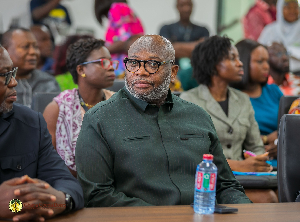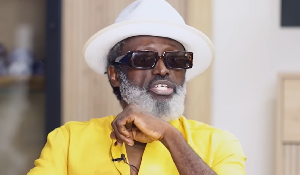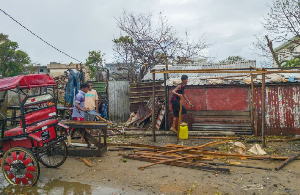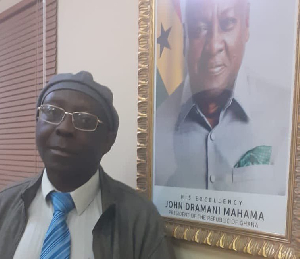Business News of Friday, 14 February 2020
Source: theheraldghana.com
Debt increase under Akufo-Addo lowest in 10 years – Bawumia
The Vice President, Dr. Mahamudu Bawumia, has stated that the rate of debt accumulation over the last three years is the lowest Ghana has achieved in a decade, in spite of reports that the public debt has risen to GH¢214.9 billion as at November 2019.
The New Patriotic Party (NPP) in its 2016 manifesto, specifically promised “savings from the reduction of interest rates paid on the country’s debt stock.”
This formed part of a broader strategy to improve Ghana’s macroeconomic stability, however, recent warnings of the country likely crossing the high risk of debt distress threshold, has heightened some fears about the economy.
In almost a two-hour address at a town hall meeting in Kumasi yesterday, the Vice President, noted that there’s been “significant progress” in this regard, because other promises, like the realisation of the Fiscal Responsibility Act, had been met.
“The strong fiscal adjustment that has taken place and better debt management meant that the rate of debt accumulation has slowed down considerably to the lowest in a decade. Between 2008 and 2012, Ghana’s debt stock increased by 267 percent. Between 2012 and 2016, Ghana’s debt stock increased by another 243 percent. But between 2016 and 2019, the increase has been by 79 percent. So there is a big difference.”
He further attributed the decline in fiscal deficit on a cash basis from 6.8 percent of rebased GDP in 2016 to 3.8 percent in 2018, 4.8 percent in 2019, to these promises.
Continuing to pat himself on the back, he added that “for the first time in a decade, Ghana recorded primary balance surpluses…three years in a row.”
The primary balance surplus was 0.5 percent of GDP in 2017, 1.4 percent in 2018 and 0.9 percent in 2019 compared to a deficit of 1.1 percent in 2016.
This is contributing to a slower rate of debt accumulation which Dr. Bawumia said means they are “implementing good fiscal management and prudent fiscal management.”
The total public debt has increased from GH¢122 billion in 2016 to GH¢214 billion in November 2019 representing 62.2 percent of GDP.
But, Dr. Bawumia, reminded Ghanaians that the increased debt, included the cost of the banking sector cleanup which is over GH¢13 billion.
“Excluding the cost of the banking sector cleanup, the debt stock stands at GH¢203 billion or 59.1 percent of GDP,” he said.
Because of what he held was better debt management, “the rate of debt accumulation has slowed down considerably to the lowest in a decade.”
All this, the Vice President said, was in service of the promise to reduce the rate of borrowing.
In addition, he said Ghana’s interest as a percentage of GDP has declined from 6.9 percent of GDP to 5.6 percent in 2016 to 5.6 percent in 2018 to 5.7 percent in 2019.
Ghana’s recent sale of $3 billion in Eurobonds puts it in high risk of distress, according to the International Monetary Fund.
Ghana received about $15 billion in offers for the debt issuance that included a tranche of sub-Saharan Africa’s longest-yet Eurobond with an average life of 40 years.
The sale would increase Ghana’s debt burden, which the International Monetary Fund estimated was 63% of gross domestic product at the end of 2019.
The World Bank also cautioned Ghana against piling its external debt and exceeding the sustainability threshold.
The Africa Economic Outlook, in its section on Ghana, also warned that increased foreign participation in Ghana’s debt exposes the country to global market swings and foreign exchange risks.
It noted that “mounting energy sector liabilities, due to excess installed capacity from take-or-pay contracts with independent power producers, and the ongoing financial sector clean-up are likely to lift the debt-to-GDP ratio above the current 60.6 percent.”
In addition, despite the Fiscal Responsibility Act, it warned that the run up to elections might put pressure on the government to overspend and under-tax “which could derail progress toward fiscal consolidation.”
The Finance Minister, Ken Ofori-Atta, in turn, assured that Ghana’s debt to GDP, which is the total value of all goods and services produced, will not escalate to alarming levels with the issuance of the latest Eurobond.
Vice President Bawumiaalso described as baffling the opposition National Democratic Congress’ (NDC) sudden interest in the well-being of indigenous firms despite its track record.
This, according to him, is because the party during its tenure in power had knowledge of the struggles of some financial institutions but decided to sweep the problem under the carpet and worsen the situation by providing liquidity support to these failing banks when it ought to have known it wasn’t sustainable.
“The government was aware of the problem and they have been aware of this problem for over five years. Since 2015 they knew but had no courage to deal with the canker in the banking sector.
“Even in opposition, I alerted the country that on the faces of the available data, 8 banks were likely to collapse. But they did nothing, they refused to act,” Dr. Bawumia said at the Town Hall meeting.
The Bank of Ghana (BoG) in 2017 embarked on a comprehensive reform agenda to strengthen the regulatory and supervisory framework for a more resilient banking sector.
While some banks had their licenses revoked, others were merged for their inability to raise the new ¢400 million minimum capital requirement as of December 31, 2018.
For other banks, the central bank revealed their closure was because they acquired their licences fraudulently and through the use of non-existent capital.
The situation led to a heated debate between the NDC and the governing New Patriotic Party over how the crisis was handled.
But Vice President Bawumia, maintains the cleanup by the BoG was the best move for the country.
According to him, over 4.6 million depositors would have lost their money and ten thousand jobs would have been lost if the decision was not taken by BoG with support from his government.
Reiterating an earlier promise by President Akufo-Addo in his 2019 Christmas message to Ghanaians, the Veep assured of 100 percent payment of all deposits by customers of the various affected banks.












